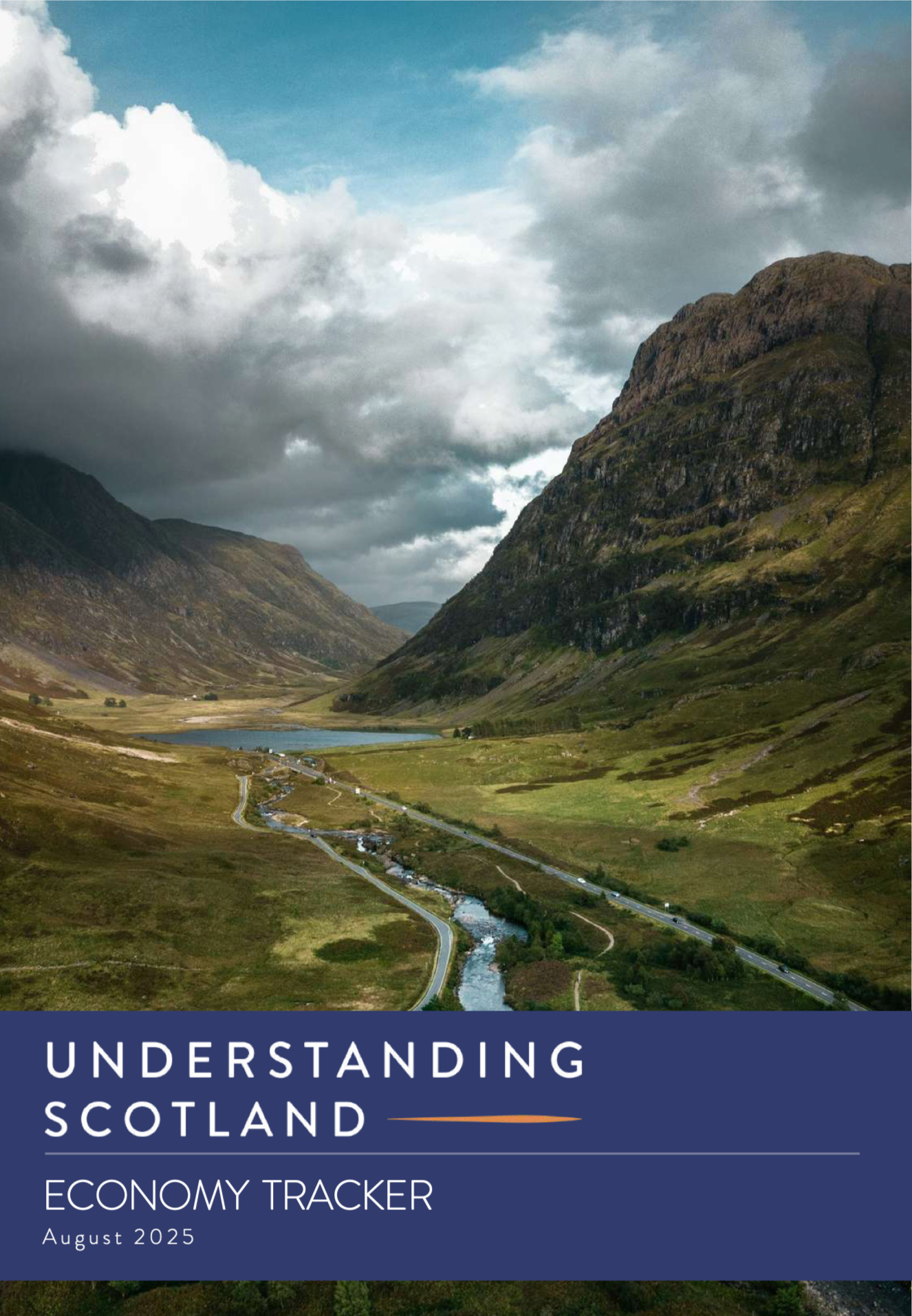Press Release: Scots continue to cut back due to financial strain
26th August 2025
New Understanding Scotland Economy Tracker reveals shifting behaviours, and a sharp rise in immigration as a public concern
Economic pressures continue to weigh heavily on households across Scotland, with new data from the Understanding Scotland Economy Tracker revealing widespread cost-cutting and continued anxiety about the future.
The survey commissioned by the David Hume Institute and the Diffley Partnership, regularly tracks public opinion and spending intentions, collected data in the first week of August.
Almost three in four (71%) of Scots expect the general economy to worsen over the next year. Two out of three (67%) report that general economic conditions have worsened over the last twelve months (down from 70% in May 2025).
The report also highlights how financial pressures are impacting daily life:
Half of Scots (53%) have reduced all but essential spending and cut back on leisure activities (51%)
3 in 10 (30%) report financial stress impacting their mental health
1 in 6 (16%) say money matters are causing strain in their relationships.
The cost of living is also continuing to affect food choices:
1 in 2 (55%) have cut back on takeaways or dining out
1 in 2 (49%) are shopping based on price rather than health
1 in 4 (26%) are reducing fresh fruit and vegetables
1 in 4 (25%) are eating more processed foods.
Saving behaviours reflect both constraint and caution. More than one in three (35%) Scots say they struggle to save because their income only covers essentials, while one in four (25%) are saving due to uncertainty about the economy and one in 10 (10%) due to concerns about job security.
Immigration is now one of the most frequently mentioned issues facing Scotland. The August 2025 survey shows that one in five (21%) of Scots now identify immigration as one of the top three issues facing the country, up from 16% in May and just 4% in May 2023. This means that immigration is seen as a higher priority among the public than issues such as the economy (15%) and trust in politics (14%).
Healthcare (48%) and cost of living (37%) remain by far the most commonly cited issues by Scots.
Scott Edgar, Senior Research Manager, at the Diffley Partnership said:
“This wave of data continues to show how economic pressures are reshaping everyday life in Scotland. From reduced spending and leisure activities to changes in food choices, people are adapting in ways that reflect both constraint and caution.
We’re also seeing a divide in saving behaviours, many Scots are saving out of uncertainty, while others simply can’t afford to save at all because their income only covers the essentials.
Healthcare and the cost of living remain the top public priorities, but the rise of immigration as a leading concern marks one of the clearest shifts we have seen in recent waves of data. With Scottish Parliament elections on the horizon, political leaders will be alive to these underlying changes in public sentiment as they shape their pitch to voters.”
Susan Murray from the David Hume Institute said
“Sadly too many people in Scotland are still struggling which will have long term consequences for the nation’s health and the economy. If people continue to lose sleep over their finances, it will impact on their effectiveness at work. For anyone that cares about increasing productivity. These numbers matter.
”This survey shows that there are stark differences between Scots. For the first time we have asked questions about saving behaviour - a small number of people are saving by default as their income is bigger than their day to day spending, while one in three people struggle to save as their income only covers essentials. As we head into the autumn budget, so many people living precarious lives poses big questions for the Chancellor.”
ENDS
Notes to editors:
Designed by the Diffley Partnership and the David Hume Institute, the survey received 2,190 responses from a representative sample of the adult population, aged 16+, across Scotland. Invitations were issued online using the ScotPulse panel, and fieldwork was conducted between the 1st-5th August. Results are weighted to the Scottish population (2023 estimates) by age and gender.

